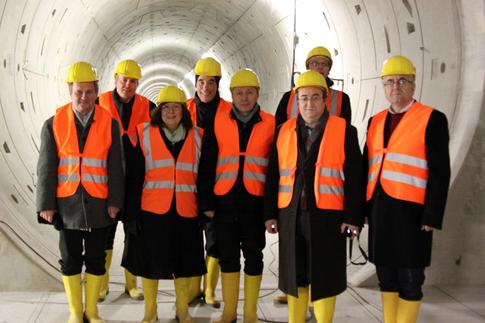XFEL: Turkish scientists seek to strengthen cooperation with European XFEL
Turkish scientists seek to strengthen cooperation with European XFEL
The visit focused on strengthening the cooperation between European XFEL, DESY, and the Turkish Accelerator Center (TAC). At TAC, two free-electron lasers (FELs) are about to be built: one operating in the X-ray range, the other in the infrared range.
“I hope that Turkey will become a member state and shareholder of European XFEL within the next one or two years”, said TAC director Dr Ömer Yavaş. “Turkish scientists should be able to intensively utilize the research opportunities at the world’s brightest light source. In addition, we would be able to benefit from the experience gained during construction and research at European XFEL when it comes to build our accelerator centre.”
Zehra Sayers of Sabancı University in Istanbul added that there already is an established community of scientists in Turkey using modern X-ray sources. “These researchers are very interested in the research opportunities at the European XFEL”, she said. “We would like to offer the chance to work in this environment especially to Ph.D. students and young scientists.”

European XFEL and the TAC had already signed a memorandum of understanding on scientific cooperation in May 2012. Twelve Turkish universities are involved in TAC under the coordination of Ankara University. The infrared FEL TARLA, currently under construction about 15 km south of Ankara, will be the first TAC project to be realized. Four GeV-scale accelerator facilities are planned as part of TAC, and the Institute of Accelerator Technologies of Ankara University was established in 2010 for research at TAC.
